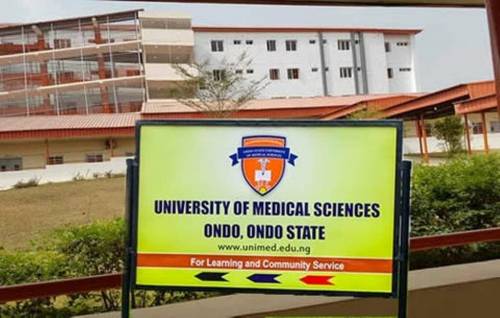News
Artificial Intelligence Can Help predict Future Disease Outbreaks – UNIMED

The School of Public Health, University of Medical Sciences, (UNIMED), Ondo City, Ondo State has disclosed that artificial intelligence can help predict future diseases.
This claim, according to the University image maker Isaac Oluyi, was made at the 3rd Public Health Grand Round organised by the School of Public Health of the institution on Wednesday, at the Laje Campus of the University.
At the programme, themed “Preventing the Next Pandemic: Use of Artificial Intelligence for Epidemic Monitoring and Alerts”, the guest lecturer, Prof Oluwadiya Kehinde, a surgeon and IT guru, said “AI used Machine learning methods which can be leveraged upon to prevent the spread of deadly infectious disease outbreak”.
He further said that “AI helps to process medical data which health care workers can interpret to improve health outcomes. It can be applied to public health in the area of predicting communicable disease outbreak and the direction that surveillance will take towards disease prevention and control.”
While speaking at the event, the Vice-Chancellor, UNIMED, Prof Adesegun Fatusi described “Artificial Intelligence as a computer- driven modern and innovative method that every health care workers should embrace and learn its operations. AI can pre-scan medical images and flag those of them that are unusual and direct the line of management”.
The Dean of the School of Public Health, Prof Olalekan Adebimpe observed that “pathogens or microbes are struggling with humans for survival. Part of their strategy is to catch humans unaware, like it did during COVID 19. Artificial intelligence can help to predict future disease outbreaks and position us for efficient epidemic preparedness.”
The programme was attended by healthcare professionals, medical practitioners, staff and students of the University.
Ends
-

 News5 days ago
News5 days agoInsecurity: Kogi Schools Resume On Monday
-

 Opinion4 days ago
Opinion4 days agoDon’t Pull the Plug: Why Nigerians Are Pleading for the U.S. to Extend Its Police Training Program — and Why It Must Synergize With New Military Arrivals
-

 Crime4 days ago
Crime4 days agoVigilante Reportedly Shoots Colleague Dead In Plateau
-

 News3 days ago
News3 days agoRamadan: Osun Cleric Urges Compassion Among Muslims As Asejere Distributes Relief Materials To 537 Beneficiaries









